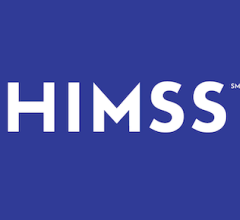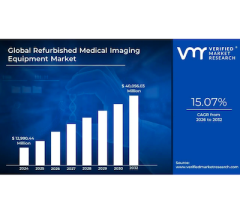
February 24, 2020 — The Royal College of Radiologists (RCR) has unveiled its new curricula for clinical radiology and interventional radiology, based around a small number of high-level learning outcomes that describe the holistic capabilities needed for day-one consultant practice.
The reshaped and enhanced curricula reflect the General Medical Council’s Excellence by Design standards for postgraduate curricula. They replace the old extensive and granular lists of knowledge, skills and behaviours with concise outcomes and tables showing the presentations, conditions and procedures that clinical and interventional radiologists need to be proficient in.
The curricula include a requirement to maintain general radiology skills alongside special interest or subspecialty practice, ensuring that all radiologists can meet changing patient and service need. They also include a requirement for trainees to embrace and evaluate emerging techniques and technologies, such as AI and hybrid imaging.
All trainees will transfer to the new curricula by August 2020, except those due to achieve their Certificate of Completion of Training before September 2021.
Stephen Harden, M.D., Medical Director for Education and Training in Clinical Radiology at the RCR, said: “Under the new curricula, training activities on the hospital ‘shop floor‘ will not be affected — what is changing is how trainee progress is monitored and how and when training requirements are deemed to be met fully. “The expectation is that trainees will be able to deliver a broad range of care, as part of maintaining a generalist skill set.”
Under the current 2016 curricula, trainees are assessed against long lists of competencies. Under the new 2020 curricula, they will instead be judged against 12 high level capabilities in practice. Six of these describe generic capabilities that apply to all doctors, including areas such as ongoing professional and reflective practice, commitment to quality improvement, leadership and teaching and supervision abilities.
There are six radiology-specific capabilities in practice that describe the unique role of a radiologist, plus two additional capabilities for interventional radiology subspecialty trainees, which focus on the ability to provide high-standard interventional care to emergency and elective patients, and the ability to clinically manage all stages of a patient’s admission and treatment.
Assessment of the capabilities is based on intuitive entrustment scales that will support professional judgement and, along with progression grids, provides clear expectations for trainee progress.
Harden continued: “The idea behind the collated capabilities is that these rounded skills are what are expected of a new clinical or interventional radiologist on day-one of consultant practice. The new curriculum states much more clearly what is expected of – and to be demonstrated by – trainees, and makes clear to the public and the medical community just how broad the role of hospital radiologist is, around and beyond our core function of image interpretation. The inclusion of emerging technology and techniques future-proofs the curriculum and ensures that trainees are able to embrace new advances.”
The curricula and a package of key documents, implementation tools and supporting information are hosted on a dedicated section of the RCR website:
https://www.rcr.ac.uk/clinical-radiology/specialty-training/radiology-curricula-2020
For more information: [email protected]


 February 17, 2026
February 17, 2026 









